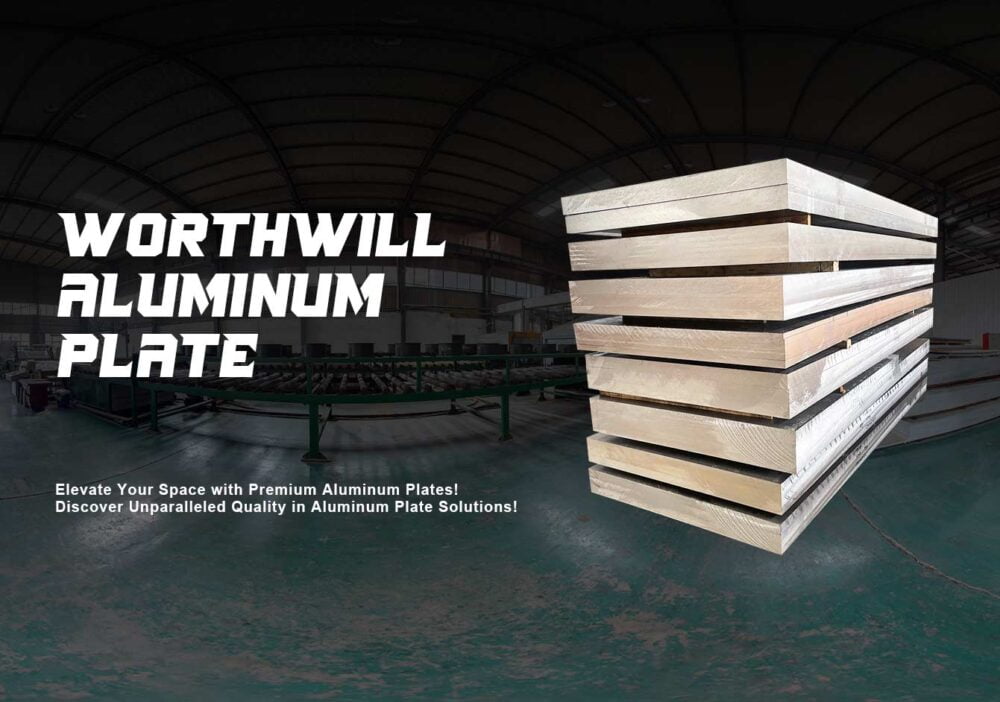Differences between 7075 Aluminum Plate vs. 6061 Aluminum Plate
At Henan Worthwill Industry Co., Ltd., we pride ourselves on providing top-quality aluminum products to meet diverse industrial needs. Two commonly used aluminum alloys in various applications are 7075 and 6061 aluminum plates.
Understanding the differences between these alloys is crucial for making informed decisions regarding their usage. In this article, we’ll delve into the differences between 7075 aluminum plate and 6061 aluminum plate, highlighting their distinct characteristics and applications.


7075 Aluminum Plate:
7075 aluminum alloy is renowned for its exceptional strength-to-weight ratio, making it an ideal choice for applications requiring high strength and hardness. This alloy contains zinc as the primary alloying element, along with small amounts of magnesium and copper. Key features of 7075 aluminum plate include:
- High Strength:7075 aluminum plate offers excellent strength properties, comparable to many steel alloys, while still maintaining lightweight characteristics.
- Corrosion Resistance: Despite its high strength,7075 aluminum exhibits good resistance to corrosion, ensuring durability in various environments.
- Machinability: Although 7075 aluminum is not as easily machinable as some other alloys, it can still be machined to achieve precise components for specific applications.
- Applications: Due to its superior strength,7075 aluminum plate is commonly used in aerospace, marine, and automotive industries, as well as in high-performance sporting equipment and structural components.
6061 Aluminum Plate:
6061 aluminum alloy is one of the most versatile and widely used aluminum alloys, prized for its excellent machinability and weldability. It contains magnesium and silicon as its primary alloying elements, imparting favorable mechanical properties. Key features of 6061 aluminum plate include:
- Good Machinability:6061 aluminum plate is renowned for its ease of machining, making it suitable for various manufacturing processes such as milling, drilling, and turning.
- Weldability: This alloy exhibits good weldability, allowing for easy joining with other aluminum alloys or materials using common welding techniques.
- Corrosion Resistance:6061 aluminum plate offers moderate resistance to corrosion, particularly in environments where exposure to moisture and atmospheric elements is prevalent.
- Applications:6061 aluminum plate finds extensive use in structural components, transportation equipment, consumer goods, and architectural applications due to its versatility and favorable mechanical properties.
Differences between 7075 Aluminum Plate vs. 6061 Aluminum Plate:
While both 7075 and 6061 aluminum plates offer commendable attributes, they differ in various aspects, summarized below:
- Strength:7075 aluminum plate surpasses 6061 in terms of strength, making it preferred for applications requiring high tensile strength and toughness.
- Machinability:6061 aluminum plate excels in machinability compared to 7075, offering ease of fabrication and intricate machining capabilities.
- Corrosion Resistance: Both alloys exhibit corrosion resistance, with 7075 slightly inferior to 6061 in this aspect.
- Applications:7075 aluminum plate is typically chosen for aerospace, military, and high-stress structural applications.Whereas 6061 finds widespread use in general engineering, automotive components, and consumer products.


In conclusion, the choice between 7075 and 6061 aluminum plates depends on specific application requirements. While 7075 offers superior strength and toughness,6061 provides excellent machinability and weldability.
At Henan Worthwill Industry Co., Ltd., we offer a comprehensive range of aluminum products, including both 7075 and 6061 aluminum plates, to cater to diverse industrial needs.
Contact us today to explore our extensive product offerings and find the perfect solution for your project requirements.

